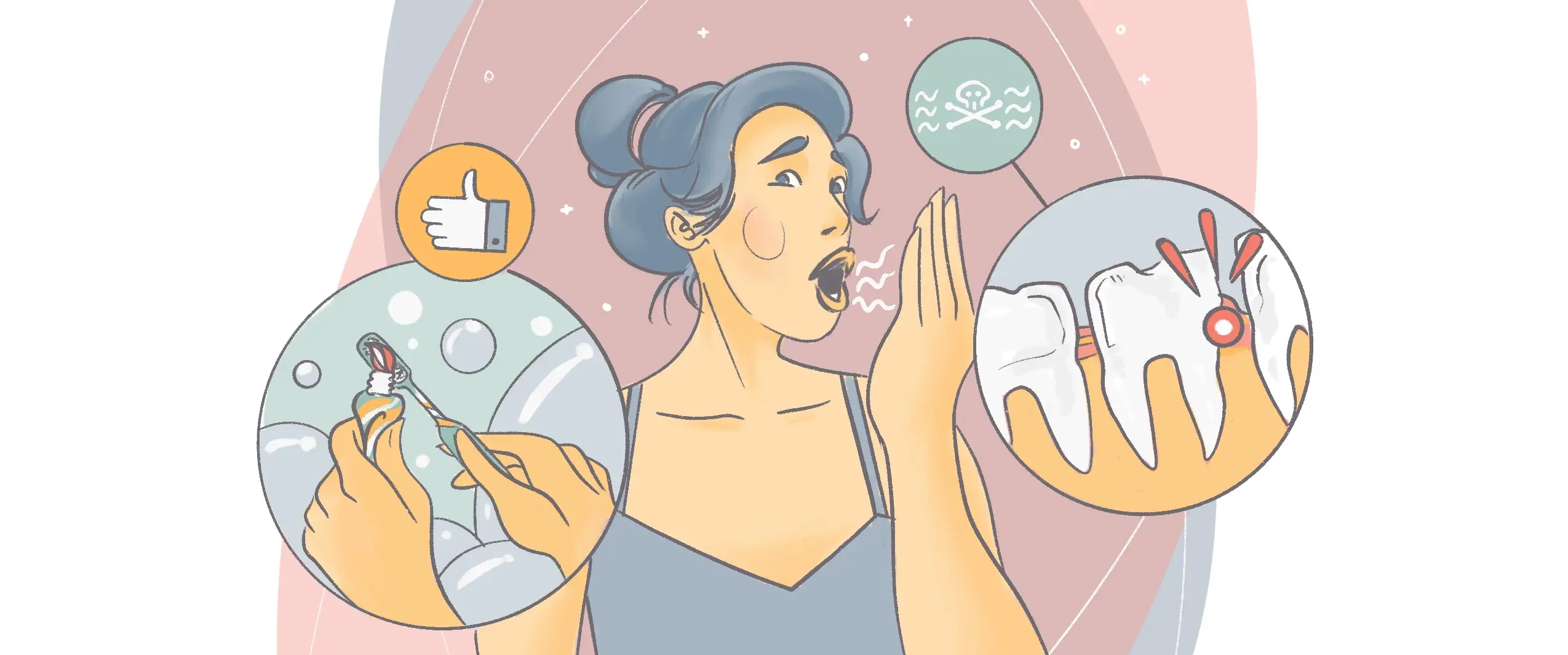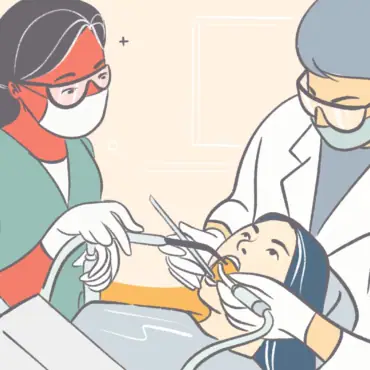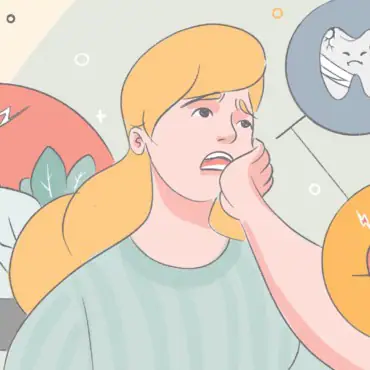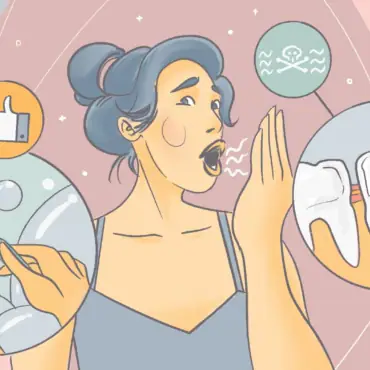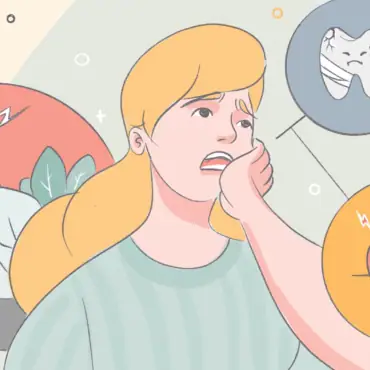Before talking about bad breath causes, it’s wise to address the effects of this condition on your personal and professional life. Unfortunately, bad breath or halitosis, as it is often known, can interfere with your relationships at home and in a career environment.
Though many people find it socially preferable to try to “ignore” someone’s bad breath, the result may be that others limit their interactions with the malodorous person. This can lead to negative outcomes in terms of interpersonal relationships and feelings of confusion or even isolation.
Thankfully, there are ways to address the underlying causes of halitosis and rectify the condition. This requires a correct approach and possibly some changes in lifestyle. However, the rewards are great.
What causes bad breath/halitosis?
While there might be several causes of terrible breath, some are more common than others. Here’s a breakdown of the typical reasons that people suffer from halitosis.
Poor oral hygiene
Poor oral hygiene is the leading cause of bad breath. It happens when you don’t regularly brush your teeth or don’t brush them in an effective manner.
Ideally, we learn to brush our teeth at an early age. However, some people may neglect their oral hygiene or practice poor brushing and flossing habits.
Bad breath forms when poor oral care is the cause as mouth odor develops when a yellow, sticky substance called plaque builds up. It’s a smelly film of bacteria that gets in between your teeth and gums and will eventually harden into tartar.
Poor oral hygiene habits can result in halitosis in addition to dental issues that may be harder to treat across time. The problem could become so bad that the only way to get rid of it is a professional and complete teeth cleaning and change in your diet.
Thankfully, bad breath due to poor oral hygiene is a preventable and resolvable condition in most cases.
Gum disease
Another consequence of not brushing your teeth every day and ineffective oral hygiene habits is gum disease. um disease in the forms of gingivitis and periodontitis can cause offensive odors to be present in the mouth.
Dry mouth
Not many people know that a dry mouth can also cause bad breath.
Usually, salivary glands keep our mouths moist and ready to chew meals; but what happens if you don’t produce enough saliva? In that case, you won’t have enough to keep food particles from getting stuck in oral crevices like the backside of your molars.
The good news is that if dry mouth is the cause of halitosis, it’s easier to treat with simple methods. For instance, chewing ice is one way to trigger saliva build-up in the mouth, or brushing your teeth is another option.
Smelly breath coming from your stomach
Certain diseases can also cause offensive breath, but they don’t necessarily stem from oral health issues.
Diseases of the stomach, like chronic acid reflux, can cause odors to rise from the stomach. These health problems could also relate to gastroesophageal reflux disease. However, seeing a dentist is the safest route to help with diagnosis.
Smoking
If you’re a long-time smoker, you’re at a higher risk of developing awful breath. The toxins contained in cigarette or cigar smoke stick to teeth, eventually staining tooth enamel.
Not only is smoking bad for your lungs, but it’s also terrible for your oral health.
The best way to rid yourself of bad breath caused by smoking is to quit and replace the habit with healthy activities, including brushing your teeth and flossing!
Coffee and alcohol
Coffee and alcohol are two other culprits that may contribute to bad breath. Both of them decrease the production of saliva in the mouth, leading to offensive breath.
Effective tooth brushing and mouthwash use can help. However, coffee can also result in teeth that are stained as well as tartar and foul odor being “locked in” to teeth.
Do cavities cause bad breath too?
Untreated cavities are a likely cause of bad breath when poor oral health is a concern.
After eating sugary foods, unchewed particles can find their way into a dental cavity, making it worse until it becomes too painful to ignore. Find a top rated dentist near you that takes your insurance.Due for a checkup?
The problem is compounded when you have multiple cavities on top of gum disease and tooth decay. It’s never a good idea to ignore cavities because they can turn into painful abscesses that eventually require oral surgery.
What are the types of bad breath odors?
The most common types of bad breath smells are easy to identify, and sometimes the odor points to the cause.
Fruity
The cause of bad, fruit-like breath could boil down to a blood sugar imbalance like diabetes. The type of diabetes doesn’t factor in as much as what it does to the mouth. When blood sugar is out of whack, you don’t digest foods properly, and the byproduct could be bad, fruity breath.
Sour
When acid reflux or related conditions are the cause, bad breath can have a sour scent. That’s because stomach acids themselves contain a smell, and some of it reaches our mouths when the condition is terrible.
Decaying
Decay is an unmistakable odor, and when it occurs in the mouth, the stench could signify liver disease or complete liver failure. Another cause of decaying odors could be an abscess in your lungs or the result of a severe infection, but it’s rare.
Fishy
You also may not know that kidney disease can cause bad breath as well. If kidneys can’t filter and rid your blood of toxins, these harmful chemicals build up in the body.
While it’s always best to see a doctor to be sure, a fishy bad breath smell could be a sign of kidney disease.
How can I permanently cure bad breath?
If you want to get rid of bad breath once and for all, you have a few options.
But none will do the trick in a lasting manner unless you see a dentist and find out what’s causing the issue.
Avoiding the dentist won’t make bad breath go away. So, the first thing to do is start taking oral care seriously. It’s the easiest method of ridding your mouth of harmful bacteria and offensive odors.
Adding a floss routine to your tooth-brushing routine is another advisable strategy.Either way, the general idea is to change personal hygiene gradually by adding healthy habits.
Due for a checkup?
Find a top rated dentist near you that takes your insurance.
Unfortunately, bad breath may not go away after improving oral hygiene, so that’s when you should book an appointment with a dentist via Opencare.
Ultimately, the causes of bad breath are what determine the best way to treat the condition.

